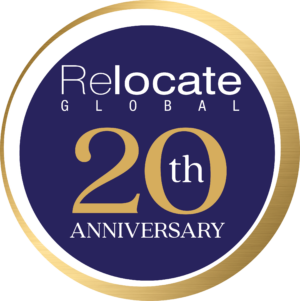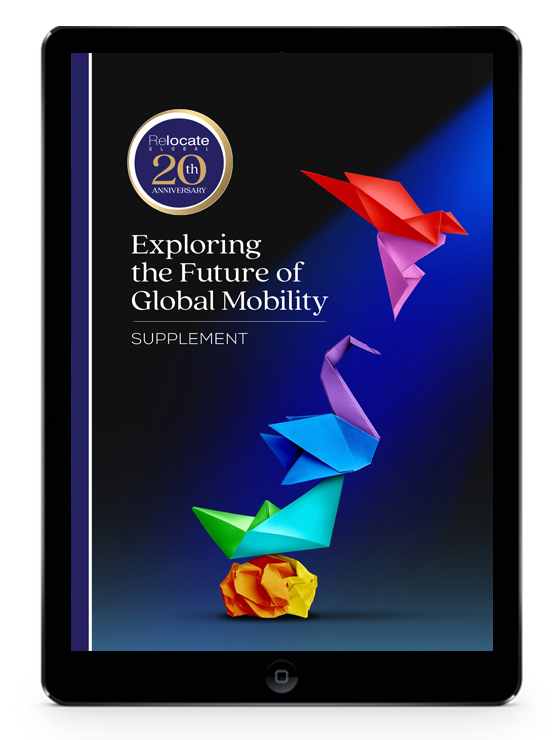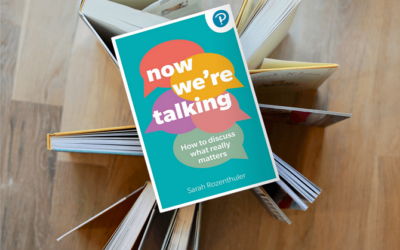Harnessing AI for best-in-class performance management
Entrepreneur and HR expert Stuart Hearn built a successful business from scratch by focusing on continuous employee feedback and putting people first. He explains to Marianne Curphey how harnessing the enthusiasm of your staff can lead to stand-out performance and a highly creative workplace.

Stuart Hearn
What will the future of work look like? HR tech entrepreneur, board advisor and startup mentor Stuart Hearn believes that technology and AI will have a significant impact on organisations and human performance.
Stuart founded Clear Review, a performance management company that enables more meaningful and continuous employee feedback. He is a performance management specialist with 20 years’ HR experience, both as an HR Director and Consultant. He highlights the need to adapt to rapid changes and the shift towards valuing skills over qualifications.
“AI is going to make huge changes in the future of work for good or bad. As organisations and employees, we need to be able to get to grips with what that means,” he says. “A key implication will be that skills will become more important than qualifications. The idea of going to university and studying one subject which sets you up for life will be less relevant.”
He points to the generation of workers who have now retired, who may have had one or two careers, yet today’s school leavers are forecast to have 18 different jobs and six different careers.
“That is a fundamental shift. So how do we continually deal with reskilling people and understanding what people’s skills are?”
Another key change will be the impact of wellbeing and mental overload. As information grows at a faster and faster rate, how do we deal with that? How can we stay healthy when many of us have an “always on” mentality?
“We can’t rely on promises about tech being able to solve that information overload,” he says. “When email came out we thought it would make our work life simpler and more manageable, and yet now we have never worked this hard before in terms of the number of hours we devote to our jobs.”
How can AI positively impact our working lives?
Stuart acknowledges the transformative potential of AI in shaping the future of work. What is important, he says, is asking fundamental questions about why and how AI is used, advocating for ethical considerations, and being careful about how we measure its effects.
“If we are going to measure the impact, positive or negative, of AI then we need to go and ask some fundamental questions. What is the why behind it, and why do we want it, and what do we expect that to achieve?” he says. “At the moment there is a danger that not enough people are asking those questions. Are we asking why we want it? Is it being effective? Is it making our lives better?
“That is a really important question that people need to bear in mind. As Human Resources leaders, we need to have that in mind when we make decisions for the future. From an ethical point of view, do want to reduce workload so we can get rid of people’s jobs? Or do we want to get AI to do the things that we actually find impossible or very difficult to do or too tedious to do so that we can focus on the more creative things?”
Stuart believes AI can be leveraged in a positive way if we can use it to enhance organisational processes while being mindful of the ethical implications it presents.
“As humans, we are going to have to be stronger about demanding what we do and don’t want it AI to do. We are in charge of AI. When you listen to the AI leaders, they talk about it being inevitable as though we have to just accept that this is going to happen. I don’t actually agree with that. I think we need regulation and thankfully regulation is starting to happen.”
He argues that as buyers and consumers of AI we need to be clear to the vendors and product creators around what we expect from their products, including the ethical use of AI and putting up guardrails to limit the damage it might do.
“AI does have the ability to do some fantastic things that we as human beings simply can’t do,” he says. “Or to do things that we find too overwhelming to do. For example, we have some much information and data and there is some really exciting new technology in the HR space coming through that utilises AI. I’m lucky enough to be involved with a venture capital fund that invests in specifically in technologies in the future of work so I get to see some of these things very early on.”
One such technology is designed to help senior leaders cut through the noise and truly understand what is going on in their organisation and enables them to make more informed decisions around strategy and planning.
“Where that gets really interesting is if we take that beyond senior leaders open up the technology to everyone,” he says. “That way, AI could decipher and summarise the meeting notes, read all the emails, analyse the chat and succinctly tell us what is going on and what we really need to focus our time and energy on.
“In other words, it is not replacing us as human beings. It is enabling us to be more effective and have better human interactions. We spend less time reading meeting notes and more time actually talking to people, making decisions, adding ideas and coming up with strategies.”
Better performance management metrics
When it comes to performance management, Stuart advocates for continuous and open feedback, highlighting its importance in driving improvement and employee engagement. “I created Clear Review based around managing performance in a way that actually improves people’s performance, rather than just getting data to work out what we should pay people. It focuses on objectives that are shorter term, rather than 12-month objectives, which go out of date by the time we get to the end of them.”
Stuart argues that the model where employees meet with a manager to discuss their progress once or twice a year is outdated and ineffectual, leaving the employee without a sense of direction or focus.
“Now I think continuous feedback is becoming the de facto way of managing performance, which is good. It is nice to know that we had an influence in actually changing organisations. Everybody needs to know how they are doing. If you do not know how to improve or if you are told how you could improve several months later, then that is a wasted opportunity.
“Whereas if you are getting feedback as you go along, you can actually do something about it. Generally, people perform well, but if feedback is saved up for a meeting once or twice a year, that meeting tends to focus just on the things that could be improved. If I’m getting regular feedback, eight out of 10 of those pieces of feedback are probably quite good. I’m much more likely to take negative feedback on board and take it less personally, because I’ve had lots of good feedback in between.”
Creating a people-centric organisation
Stuart emphasises the need for organisations to regularly reassess their processes and align them with core values to foster innovation and success.
“As things speed up, what works one day won’t necessarily work two years later, or as the business changes,” he says. “One of the things that we applied really well at Clear Review was making sure we were values-focused. So the things that never changed were our values. We set those up quite early on and were clear about what we were going to live by.
“The result of this was that we created a truly values-based organisation. Over the five to six years before we were acquired almost nobody left. We had a huge number of people who wanted to come work for us because the way that we treated people and the way that we lived those values out was so different and refreshing to people coming in into the workplace, especially the younger people coming in.”
He says that it was a kind of experiment to see if you created a people first organisation which genuinely valued people’s, does it make you more successful?
“The answer is yes, it does,” he explains. “We grew incredibly quickly and we were acquired very successfully at the end of it, so it felt like we proved our thesis around what it is like to run a company in that way.
“A lot of organisations think it’s going to be too expensive or that is it too tricky, but we proved that approach to business leads to higher performance, and people end up being a lot happier. We describe it as a “call to action organisation” because everyone was so passionate about the work that we did. Our staff told us they had never worked in a company like it where everyone is super engaged in what they do.”
Overall, Stuart paints a picture of the dynamic nature of work in the face of technological advancements and the importance of ethical considerations, continuous learning, and adaptability in performance management in order to create a positive workplace culture. Putting people first yields results, and businesses can benefit from harnessing their enthusiasm.


 Magazine
Magazine


